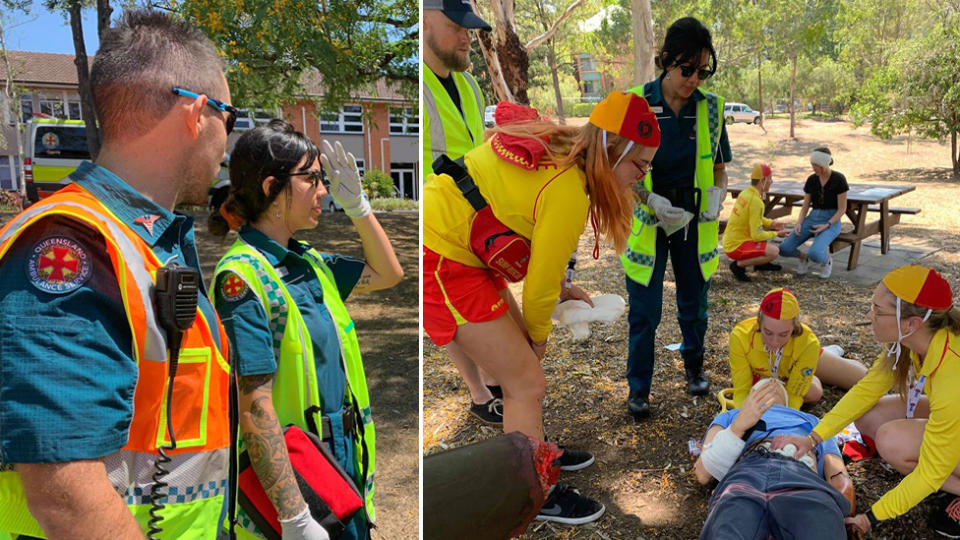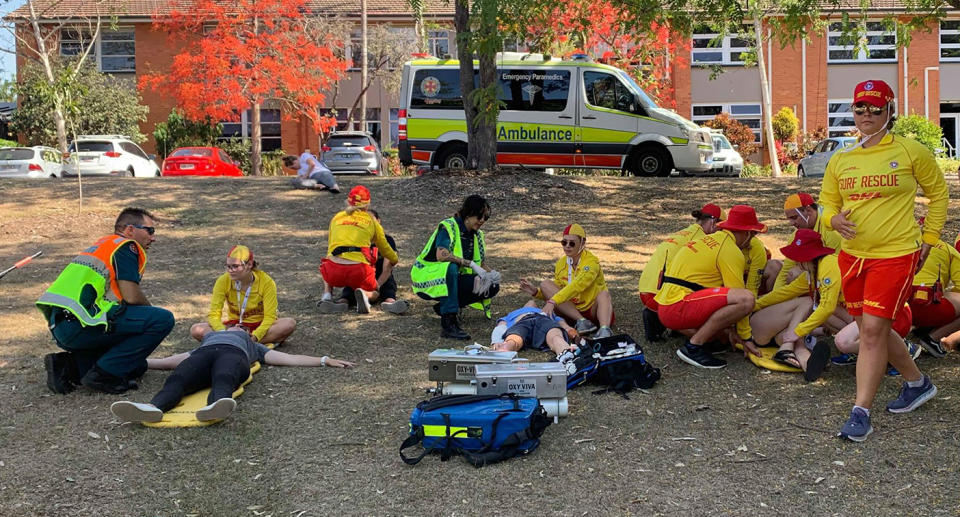'It’s so dangerous': The biggest hazard on the road scaring paramedics
A young male was trapped inside his vehicle, screaming in pain, he had just crashed his car, and had sustained significant damage to his pelvis and lowers legs.
It took 45 minutes for firefighters to cut him out of the wreckage, so paramedics could take over.
Queensland Ambulance Service (QAS) advanced care paramedic Kowai Timu witnesses medical emergencies daily as part of her job but it was that one accident which she is reminded of every day.
“Police confirmed to us that he was on his phone while he was driving, so he was distracted,” the 28-year-old told Yahoo News Australia.
The driver survived but the reason for the accident still haunts Ms Timu.
“It was a really sad scene to be at and for other people that have to witness that too,” she said.

Ms Timu admits she’s ‘that friend’ that tells everyone to put their mobile phones away when driving.
“It’s so dangerous,” she said, but it’s not uncommon to see motorists on their phones.
“We still see it now, we’ll be driving to jobs and because we’re higher set in the ambulance, we can see people on their phones all the time”.
Penalties for using your phone while driving
A world first mobile phone detection camera program began this month in NSW, and high-definition cameras using artificial intelligence will be able to spot motorists illegally using mobile phones while driving.
NSW drivers who ignore the law can be penalised five demerit points. Queensland, Victorian and ACT drivers can be penalised four demerit points. In South Australia, Western Australia, Tasmania and Northern Territory drivers can be penalised three demerit points.
All states include hefty fines as well, with Queensland leading the way increasing fines from $400 up to $1000 from February 1 for each offence.

How paramedics prepare for the trauma of attending accidents
In her two years at the QAS, Ms Timu has had one focus, saving lives and she never knows what she will encounter during her day.
“It’s unpredictable, some mornings we’ll have time to sit at the station and have a chat but often times, we’ll get a job straight away so we’re straight into paramedic mode the minute we log on”.
Arriving at the scene of a medical emergency is always “daunting”, even with all the training and passion Ms Timu has for the job.
“We only get a very vague description of what the job is and we’re trained to prepare for the worst,” Ms Timu said.
On the way to a job Ms Timu and her partner will discuss the number of patients, how to stay safe at the scene and what to do if someone’s life is on the line.
“I guess the scary thing is knowing if that person is in a critical condition, it’s our responsibility to do everything we can to save them,” she said.
It’s one of the reasons paramedics never stop training and while there is no substitute for the real thing, Ms Timu says simulating medical emergencies is a valuable exercise.

Paramedic training never stops
In November Ms Timu and her partner participated in a community engagement event involving mock multiple casualties with a local surf lifesaving club.
“They treated it as quite a serious situation and they had real life actors as well as mannequins simulating different people,” she said.
Even when the patients are made of plastic, Ms Timu said everything helps.
“The more practice that we can get at doing it, the better we are going to be,” she added.
Medical training is a necessity of the job but Ms Timu thinks communication is one of the most important tools a first responder can have.
“Often our presence can make people a bit nervous sometimes, especially in those high stress situations, so It’s really beneficial if you can just have a chat, build that rapport with patients straight away,” she said.
‘It’s not all about you’
Being present in every call-out is something Ms Timu prides herself on and said it’s just as important for drivers to focus.
“It’s not all about you, if you’re driving and you’re distracted, you’re alcohol or drug affected or you’re just tired – you’re not just risking your life but you’re risking the life of someone’s mother or child or grandparent,” she said.
And the way to make our roads safer is simple.
“Just please drive carefully, remain vigilant on the roads and look after yourself,” Ms Timu said.
Do you have a story tip? Email: newsroomau@yahoonews.com.
You can also follow us on Facebook, Instagram and Twitter and download the Yahoo News app from the App Store or Google Play.


